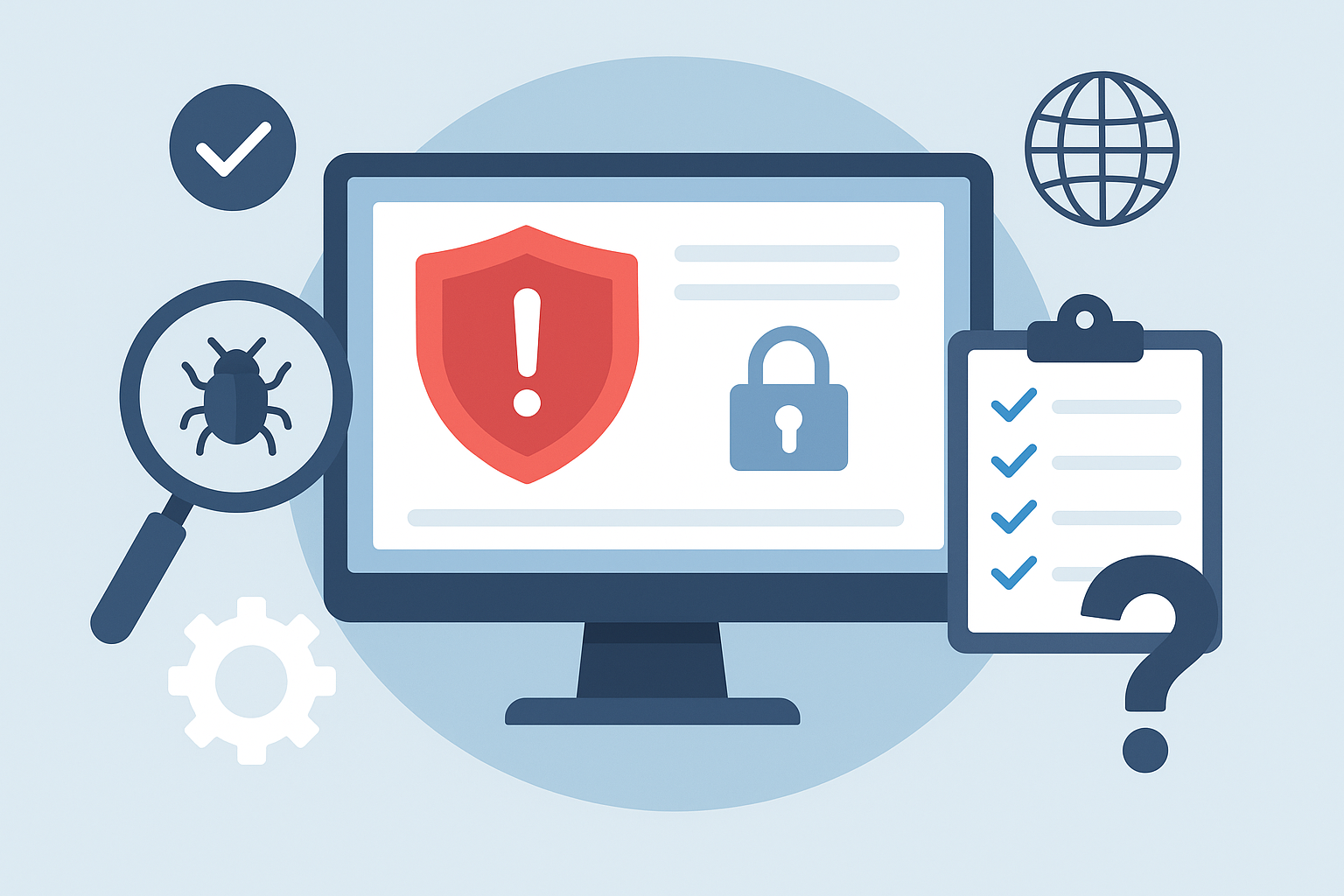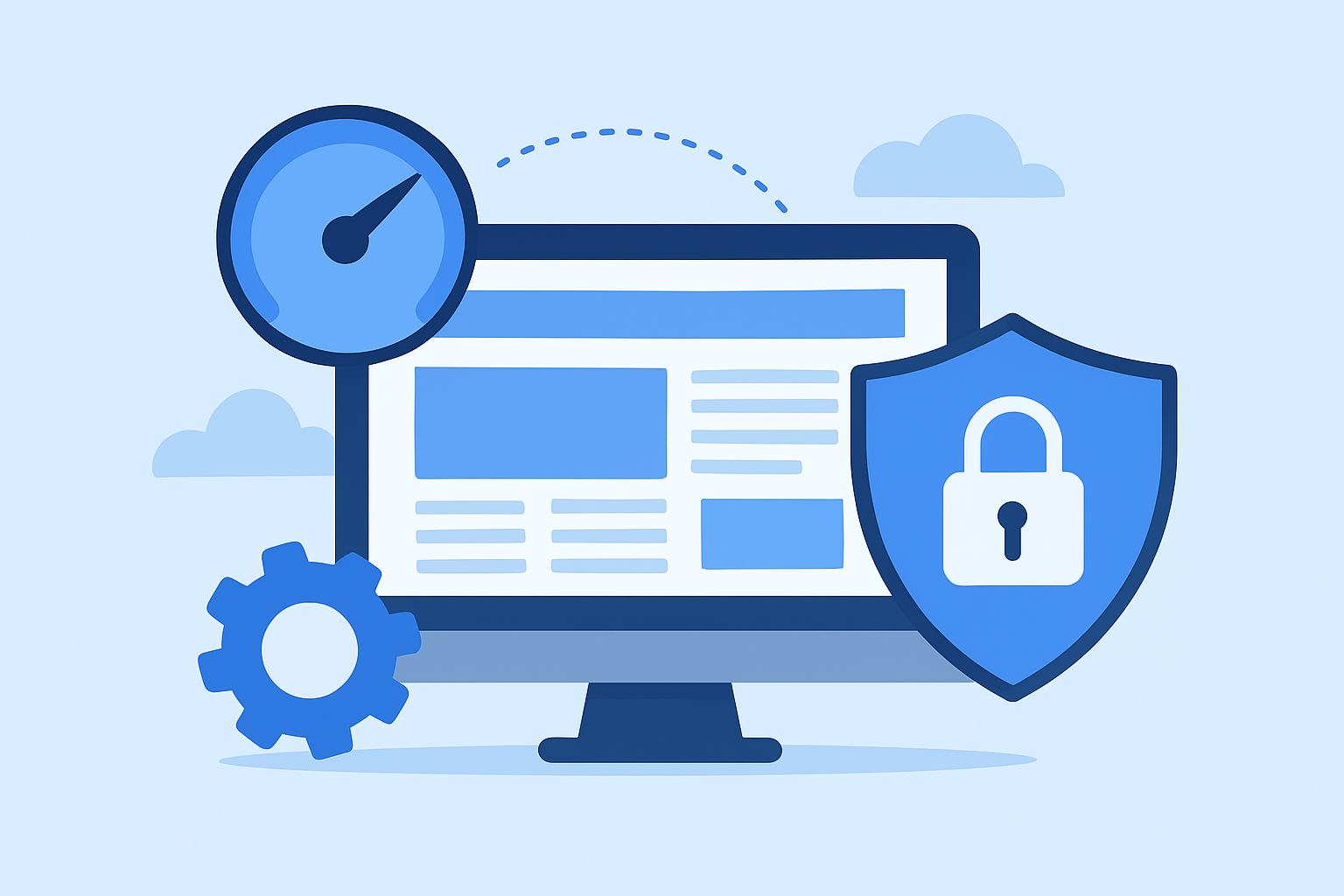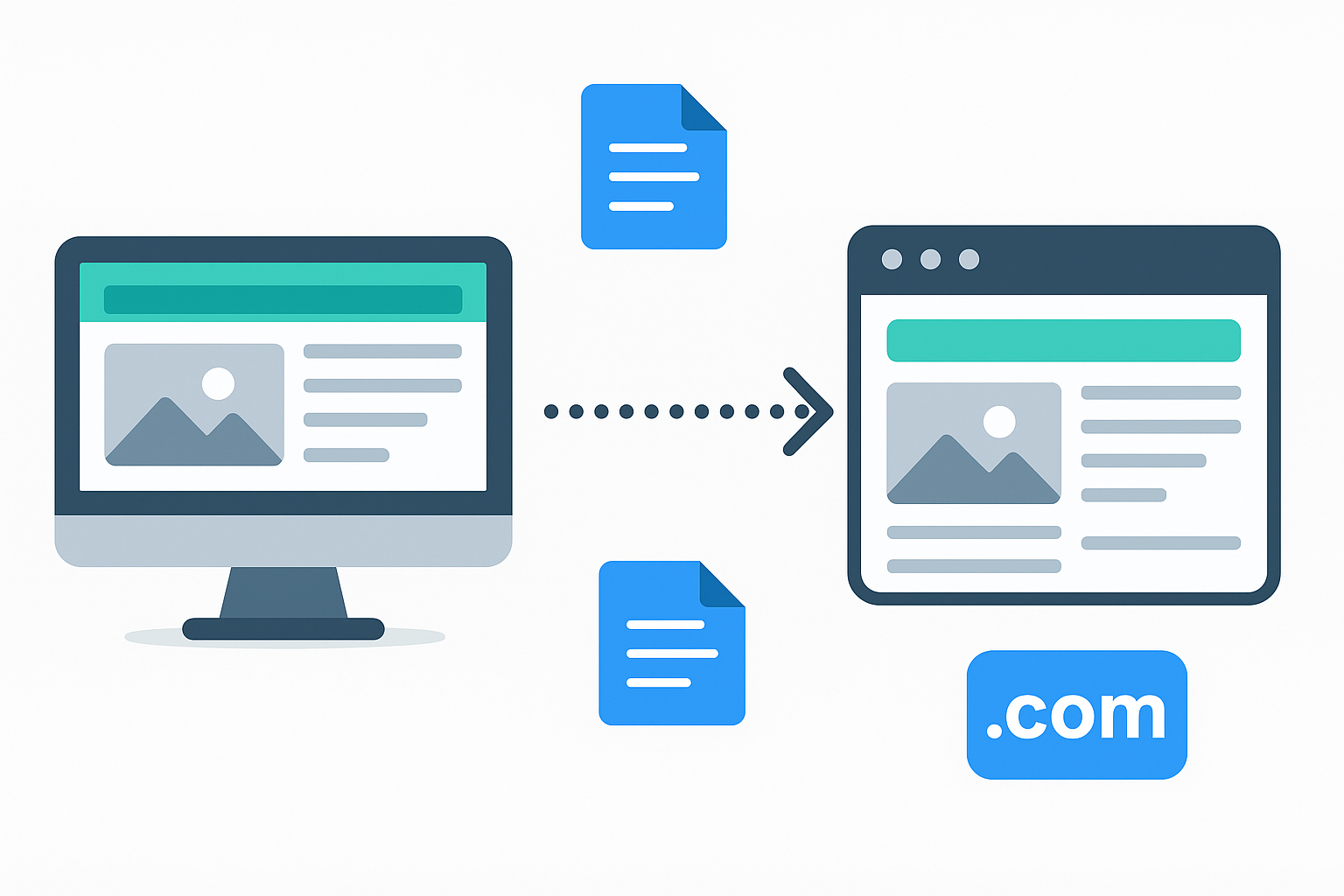A Website Vulnerability Check is an essential step in safeguarding your online presence. In today’s fast-paced digital landscape, websites face numerous threats that can compromise data, performance, and trust. Whether you run a small blog, an e-commerce store, or a large corporate site, understanding the weaknesses in your system is crucial. Conducting a comprehensive Website Vulnerability Check helps you identify loopholes before hackers exploit them, ensuring your business stays protected and operational. This process involves testing every aspect of your website’s security — from outdated plugins and weak passwords to misconfigured servers and malware injections. When done properly, it strengthens your defense, improves customer trust, and keeps your website running smoothly without interruption.
Introduction: Understanding the Importance of Website Vulnerability Check
In the modern digital world, your website is more than just a collection of pages — it’s the face of your business, your reputation, and your primary connection to customers. However, as technology evolves, so do cyber threats. Every day, new security risks emerge, targeting websites of all sizes. This is where a Website Vulnerability Check becomes a vital part of maintaining online safety. By regularly scanning for vulnerabilities, businesses can detect security flaws before they’re exploited by attackers.
At FixHackedSite, we understand the importance of proactive protection. Many website owners realize they’ve been compromised only after losing data or customer trust. A proper Website Vulnerability Check goes beyond surface-level scanning — it dives deep into the structure, plugins, scripts, and hosting environment to ensure everything is secure. This check identifies weak points, offers solutions, and creates a safer experience for users.
Performing consistent vulnerability assessments not only shields your data but also boosts your SEO ranking. Search engines favor websites that maintain high security standards. Additionally, customers are more likely to engage with websites that demonstrate strong protection measures. In short, implementing regular Website Vulnerability Checks ensures long-term stability, performance, and peace of mind in the digital world.
What Is a Website Vulnerability Check?
A Website Vulnerability Check is a systematic process used to detect potential weaknesses, misconfigurations, and security loopholes in your website. These vulnerabilities could allow hackers or malicious bots to gain unauthorized access, inject harmful code, or steal sensitive data. The check involves running automated scans and manual inspections to uncover both known and hidden risks. It’s like a digital health test that ensures your website’s defenses are strong and resilient against attacks.
The process typically analyzes every aspect of your site’s infrastructure — including the web server, CMS (like WordPress or Joomla), plugins, themes, databases, and third-party integrations. A good Website Vulnerability Check not only identifies issues but also categorizes them based on their severity, helping you prioritize fixes efficiently.
In today’s interconnected world, even a single vulnerability can compromise your entire business. Hackers often use automated tools to exploit weak spots on thousands of websites at once. Regular vulnerability assessments prevent such risks by keeping your site up-to-date and secure. By understanding what a Website Vulnerability Check is, you’re taking the first step toward a safer, more reliable online presence.
Why Your Website Needs Regular Vulnerability Checks
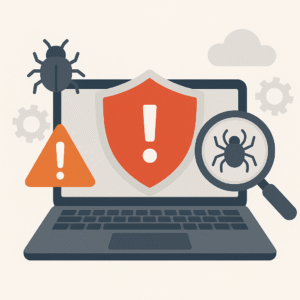 Many website owners believe that once their site is launched, it’s automatically safe. Unfortunately, this misconception can lead to severe security breaches. Cyber threats are constantly evolving, and even the most secure websites can become vulnerable over time due to outdated software, weak authentication, or misconfigured servers. Regular Website Vulnerability Checks ensure that these issues are identified and resolved before they turn into major problems.
Many website owners believe that once their site is launched, it’s automatically safe. Unfortunately, this misconception can lead to severe security breaches. Cyber threats are constantly evolving, and even the most secure websites can become vulnerable over time due to outdated software, weak authentication, or misconfigured servers. Regular Website Vulnerability Checks ensure that these issues are identified and resolved before they turn into major problems.
A consistent security check schedule can help you detect threats like SQL injections, cross-site scripting (XSS), and malware infections. These attacks can steal sensitive information, disrupt operations, or even blacklist your site from search engines. Regular scanning not only protects your data but also improves your credibility in the eyes of customers and search engines.
Moreover, performing a Website Vulnerability Check helps maintain compliance with industry regulations such as GDPR or PCI-DSS. These standards require businesses to take active measures to protect user data. Neglecting regular checks can result in legal consequences or loss of customer trust. Simply put, consistent vulnerability assessments are a long-term investment in your website’s security and reputation.
Common Types of Website Vulnerabilities
Understanding the types of vulnerabilities that threaten your website is key to protecting it. Some of the most common issues include weak authentication, outdated software, insecure data transmission, and poor coding practices. Each of these vulnerabilities can open doors for cybercriminals to exploit. For instance, a weak password policy or lack of two-factor authentication can allow unauthorized access to your site’s backend.
Another major vulnerability arises from unpatched plugins or themes. Developers often release updates to fix security flaws, but when these updates are ignored, hackers can easily exploit the outdated components. Similarly, websites that fail to encrypt user data using HTTPS are at risk of interception attacks where data is stolen during transmission. Conducting a Website Vulnerability Check can reveal these hidden threats and guide you on how to fix them.
Additionally, cross-site scripting (XSS) and SQL injection attacks remain among the most common threats. These attacks manipulate website code or database queries to gain unauthorized access or inject malicious scripts. Regular Website Vulnerability Checks identify and neutralize such weaknesses, ensuring that your website remains safe, functional, and trustworthy.
The Role of Automated Vulnerability Scanners
Automated vulnerability scanners play a crucial role in modern website security. These tools are designed to continuously analyze your website for potential threats and weaknesses. They scan thousands of lines of code, scripts, and configurations within seconds, identifying security gaps that might go unnoticed in manual inspections. Using an automated scanner as part of your Website Vulnerability Check ensures quick, accurate, and efficient detection of risks.
These scanners can simulate real-world hacking techniques to test your site’s resilience. For example, they may perform SQL injection attempts, check for outdated libraries, or test authentication weaknesses. This helps you understand your website’s vulnerabilities from a hacker’s perspective and implement stronger defenses accordingly.
However, automated scanners alone aren’t enough. They’re an excellent first line of defense but must be complemented by manual verification. Skilled analysts can interpret scan results, eliminate false positives, and identify context-specific issues that tools might miss. Therefore, the best Website Vulnerability Check combines automation with expert analysis to deliver comprehensive protection.
Manual Website Vulnerability Testing and Its Benefits
While automated scanners are effective for quickly detecting threats, manual testing remains an irreplaceable part of a thorough Website Vulnerability Check. Manual testing involves cybersecurity experts who analyze your website’s structure, code, and configurations in real-time to find vulnerabilities that automated tools might overlook. This human-driven approach brings precision, experience, and contextual understanding that automated systems often lack.
Manual testing allows experts to simulate targeted attacks, such as privilege escalation or business logic abuse, which automation may fail to identify. It provides deeper insights into how hackers might exploit your site’s unique functionalities or workflows. Moreover, testers can review source code, session management, and authentication mechanisms to ensure your system is resilient from within. This makes manual testing ideal for detecting complex vulnerabilities like broken access control, insecure direct object references, or flaws in encryption logic.
By combining manual and automated testing, your Website Vulnerability Check becomes more accurate and reliable. Manual testing not only validates automated results but also provides custom recommendations that fit your website’s structure. It’s an investment in quality assurance, ensuring that your digital assets remain safe, compliant, and resilient against evolving threats. This blend of human expertise and machine efficiency forms the backbone of a truly effective vulnerability management strategy.
The Impact of Vulnerabilities on SEO and Online Reputation
Your website’s security doesn’t just protect data — it directly influences your SEO performance and brand credibility. Search engines like Google prioritize safe, secure websites in their rankings. A single breach or malware infection can drastically lower your SEO score and even result in blacklisting. A Website Vulnerability Check helps prevent such issues by ensuring that your website meets all safety standards expected by search engines and users alike.
If your website is compromised, search engines often flag it as “unsafe,” leading to loss of traffic and potential customers. Visitors who encounter a warning message are unlikely to return, causing long-term damage to your brand reputation. Additionally, malicious code or spam injected into your website can distort your search results, reducing trust and conversion rates. Regular vulnerability assessments help detect and remove these issues before they cause harm.
By maintaining a clean, secure website through routine Website Vulnerability Checks, you demonstrate professionalism and reliability. Customers are more inclined to engage with brands that prioritize online safety. Furthermore, Google’s algorithms reward sites with SSL certificates, secure connections, and quick response times — all of which are improved through regular security audits. Ultimately, a secure website isn’t just about protection; it’s about growth, visibility, and trust.
The Connection Between Web Hosting and Site Vulnerability
Your web hosting environment plays a major role in your website’s overall security posture. Even with the best design and plugins, if your hosting provider has weak configurations or outdated software, your site remains at risk. A Website Vulnerability Check evaluates the server settings, firewall rules, and patch management of your hosting environment to ensure that it’s properly secured.
Shared hosting environments, for instance, can expose your site to risks if other websites on the same server are compromised. In contrast, dedicated or cloud-based hosting platforms with strict security policies offer better protection. Vulnerability scans analyze aspects like file permissions, SSL implementation, database access, and server response headers to detect weak points. This ensures your hosting platform is not an entry point for hackers.
Choosing a hosting provider with built-in DDoS protection, regular backups, and 24/7 monitoring is essential. However, even the most secure hosts need regular testing. A Website Vulnerability Check helps verify that your server configurations and software versions are aligned with industry security standards. By securing your hosting foundation, you reinforce the stability and trustworthiness of your entire online ecosystem.
How Cybercriminals Exploit Website Vulnerabilities
Cybercriminals are constantly on the lookout for weak points in websites. They use automated bots to scan thousands of domains daily, seeking outdated software, insecure plugins, or poorly configured systems. Once a vulnerability is detected, attackers can exploit it within seconds. Understanding these tactics is vital, and performing a Website Vulnerability Check helps you stay ahead of them by identifying and fixing potential targets before they’re attacked.
One common technique is injecting malicious scripts, such as cross-site scripting (XSS) or SQL injection. These attacks allow hackers to steal sensitive data, manipulate content, or gain full administrative control. Others may install backdoors — hidden entry points that allow future access even after apparent cleanup. Phishing and ransomware attacks often start with simple vulnerabilities like weak passwords or exposed APIs, showing how small oversights can lead to massive damage.
By running regular Website Vulnerability Checks, you disrupt these attack chains. Identifying weak spots early allows you to patch or remove risky components, monitor suspicious activities, and implement stronger authentication mechanisms. Staying proactive with security not only protects your website but also prevents financial loss and reputational damage caused by cyberattacks.
The Role of SSL Certificates in Website Security
SSL certificates are one of the simplest yet most effective tools for protecting your website. They encrypt data transmitted between your website and visitors, ensuring that sensitive information such as login credentials and payment details remain secure. Without SSL, any data exchanged over your website can be intercepted by attackers. A Website Vulnerability Check includes verifying the presence, configuration, and validity of your SSL certificate to ensure optimal protection.
Implementing SSL not only safeguards your users but also boosts your SEO ranking. Search engines favor HTTPS-enabled websites and mark non-secure ones as potential risks. Moreover, modern browsers display warnings for sites without SSL, which can discourage visitors from interacting or making purchases. Ensuring that your SSL is properly installed, renewed, and configured prevents these issues.
Beyond encryption, SSL certificates help build trust and credibility. Visitors who see the padlock symbol next to your domain name feel confident that their data is safe. Regularly checking SSL integrity through a Website Vulnerability Check ensures that your security certificates haven’t expired or been tampered with. This small but critical step enhances both your website’s safety and your audience’s trust.
The Importance of Updating Plugins, Themes, and CMS
Keeping your website components updated is one of the simplest yet most powerful ways to maintain online security. Outdated plugins, themes, and CMS versions often contain vulnerabilities that hackers actively exploit. When developers release updates, they usually include patches for known security issues. Ignoring these updates means leaving your site open to attacks. A Website Vulnerability Check identifies which components are outdated and helps you prioritize which ones to update first.
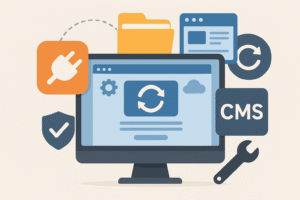 Most websites today are built on content management systems like WordPress, Joomla, or Drupal, which rely heavily on third-party plugins and themes. These add-ons enhance functionality but can also become major security risks if not maintained properly. Attackers often target popular plugins with known exploits because they know many site owners delay updates. Regular vulnerability scans ensure that every plugin and theme is current and free from known threats.
Most websites today are built on content management systems like WordPress, Joomla, or Drupal, which rely heavily on third-party plugins and themes. These add-ons enhance functionality but can also become major security risks if not maintained properly. Attackers often target popular plugins with known exploits because they know many site owners delay updates. Regular vulnerability scans ensure that every plugin and theme is current and free from known threats.
In addition to automated updates, it’s wise to perform manual inspections after each update to ensure compatibility and stability. Regularly reviewing your site’s components prevents downtime, data leaks, and performance issues. When your website is consistently updated and verified through a Website Vulnerability Check, you maintain a strong defense layer that protects both your business and your users from cyber threats.
The Link Between User Authentication and Site Security
User authentication is the first line of defense against unauthorized access. Weak login systems are one of the most exploited entry points in cyberattacks. Hackers use brute-force attacks, credential stuffing, and phishing schemes to break into admin accounts. Implementing strong authentication protocols — such as multi-factor authentication (MFA) and secure password policies — is critical. A Website Vulnerability Check evaluates your login systems to ensure they follow modern security standards.
For instance, enforcing password complexity, session timeouts, and account lockout policies significantly reduces the chance of breaches. Additionally, administrators should avoid using default usernames like “admin” or “root,” as these are easy targets for attackers. Regular audits help verify that authentication methods remain effective as technology evolves.
Beyond just login credentials, user session management is equally important. Improperly configured sessions can allow hackers to hijack accounts or maintain access after logout. During a Website Vulnerability Check, security experts test these mechanisms to ensure data confidentiality and user safety. A secure authentication system not only protects your website but also strengthens customer trust and credibility in your brand.
Database Security and Data Protection Techniques
Your database stores some of the most sensitive information on your website — from user credentials and personal data to transaction details. If compromised, it can lead to severe financial and reputational losses. A Website Vulnerability Check plays a crucial role in identifying weaknesses in your database configuration and structure. It helps prevent attacks such as SQL injection, data leaks, and unauthorized access.
One of the most common threats to databases is improper input validation. Hackers exploit unfiltered data fields to inject malicious SQL commands, gaining full access to your system. Regular vulnerability assessments detect such flaws and recommend parameterized queries or prepared statements to block them. Encryption of data at rest and in transit further enhances protection, making it unreadable even if intercepted.
Access control is another vital aspect. Only authorized users should have permission to read, write, or modify database entries. A detailed Website Vulnerability Check ensures that privileges are correctly assigned and that unnecessary access is restricted. By combining encryption, access control, and regular testing, you create a secure environment that preserves your data integrity and customer trust.
How Website Vulnerability Checks Prevent Malware Infections
Malware infections can cripple your website, compromise your data, and damage your reputation. Hackers often inject malicious scripts into websites to steal information or redirect traffic to harmful domains. A Website Vulnerability Check acts as a preventive measure, scanning every file, script, and plugin for traces of malware or backdoors. It helps detect infections early and remove them before they spread or cause irreversible harm.
Malware can enter your website through various channels — outdated software, infected uploads, or insecure third-party integrations. Once inside, it can replicate itself, alter website content, or send spam emails from your domain. This not only affects your SEO rankings but may also result in blacklisting by Google or web hosting providers. Regular vulnerability scans ensure that your website remains malware-free and compliant with security standards.
Moreover, a Website Vulnerability Check identifies the root causes of infections, such as weak file permissions or insecure APIs. Fixing these underlying issues prevents reinfection and strengthens your long-term security posture. By adopting continuous monitoring and proactive defense measures, you ensure your website stays clean, fast, and trustworthy for all visitors.
Website Vulnerability Check for E-commerce Websites
E-commerce websites are prime targets for hackers because they handle sensitive customer data, including credit card numbers and personal information. A Website Vulnerability Check is essential for ensuring that these online stores remain secure and compliant with payment security standards like PCI-DSS. Even a single security flaw can lead to data theft, chargebacks, or loss of customer confidence.
Regular vulnerability testing helps e-commerce businesses identify and fix weaknesses in checkout systems, payment gateways, and customer databases. It also ensures that SSL certificates are functioning properly and that no sensitive data is transmitted without encryption. Additionally, it verifies the security of third-party tools like shipping or analytics plugins that interact with customer information.
When shoppers trust your site with their financial details, maintaining security becomes a non-negotiable responsibility. Conducting a Website Vulnerability Check not only prevents cyberattacks but also enhances user trust and loyalty. By protecting every layer of your e-commerce platform, from login to checkout, you safeguard your reputation and keep your business running smoothly without disruptions.
The Role of Backups in Website Security and Recovery
Even the most secure websites can face unexpected threats, from cyberattacks to accidental data loss. That’s why regular backups are a critical part of any comprehensive Website Vulnerability Check strategy. Backups act as a safety net, allowing you to restore your site quickly if something goes wrong. Without them, recovering lost data or restoring your website to its previous state can be difficult, time-consuming, and costly.
When performing a vulnerability assessment, experts check whether your website’s backup systems are properly configured and functioning. They ensure that backups are stored securely, preferably off-site or in encrypted cloud storage, to protect against ransomware and physical damage. Additionally, backup frequency and versioning are reviewed to make sure you always have access to the most recent clean copy of your site.
Incorporating regular backup verification into your Website Vulnerability Check ensures that recovery is fast and reliable. A good backup strategy not only saves data but also preserves your business continuity and customer trust. By combining preventive security measures with reliable backup systems, you create a resilient digital environment that can withstand even the most severe cyber incidents.
The Future of Website Security and Vulnerability Management
As technology advances, so do cyber threats. Hackers are becoming smarter, using AI-driven attacks and sophisticated phishing schemes to exploit weaknesses. The future of website security lies in adopting proactive, intelligent solutions that evolve as fast as the threats themselves. A Website Vulnerability Check will continue to play a central role, helping organizations stay one step ahead of potential attackers through predictive and automated defense mechanisms.
Emerging trends like machine learning, real-time analytics, and automated patch management are transforming how vulnerabilities are detected and resolved. Instead of reacting to threats after they occur, modern systems can identify and block suspicious activity in real-time. This shift from reactive to proactive protection ensures faster response times and stronger defenses.
As the digital landscape expands to include IoT devices, cloud applications, and AI-driven platforms, the need for advanced Website Vulnerability Checks will only grow. Businesses that embrace continuous monitoring and adaptive cybersecurity strategies will not only protect their websites but also gain a competitive edge in customer trust and data integrity.
How to Choose the Right Website Vulnerability Check Service
Selecting the right service provider for your Website Vulnerability Check is crucial for effective protection. Not all tools or companies offer the same level of depth, accuracy, or support. The ideal provider combines automated scanning tools with expert human analysis to deliver comprehensive, actionable insights. Before choosing a service, evaluate its reputation, scanning methodologies, and the technologies it uses to detect vulnerabilities.
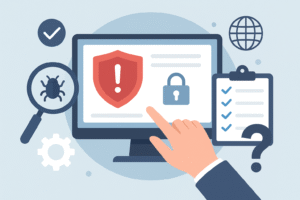 A reliable provider should offer detailed reports that highlight the severity of each vulnerability and suggest practical solutions. Transparency is key — you should know exactly what is being tested, how it’s being tested, and how results are interpreted. Additionally, ensure that the service offers ongoing monitoring rather than one-time scans. Cybersecurity is not a one-time task but an ongoing commitment to safety.
A reliable provider should offer detailed reports that highlight the severity of each vulnerability and suggest practical solutions. Transparency is key — you should know exactly what is being tested, how it’s being tested, and how results are interpreted. Additionally, ensure that the service offers ongoing monitoring rather than one-time scans. Cybersecurity is not a one-time task but an ongoing commitment to safety.
When you choose a trusted company like FixHackedSite, you gain access to a dedicated team of experts who specialize in website protection, malware removal, and performance optimization. Their comprehensive Website Vulnerability Check service ensures that your site is always secure, stable, and ready to handle whatever challenges the digital world brings.
Maintaining a Continuous Security Strategy
A one-time Website Vulnerability Check is not enough to ensure lasting protection. Cyber threats evolve daily, and new vulnerabilities are discovered regularly. Maintaining a continuous security strategy involves setting up automated monitoring, scheduling regular scans, and keeping your software, themes, and plugins updated. Security should be treated as an ongoing process — a core part of your website’s maintenance routine.
Continuous security doesn’t just involve scanning; it also requires analysis, response, and adaptation. Your security plan should evolve based on emerging threats, new technologies, and changing business needs. By constantly reviewing your defenses, you can close gaps before attackers exploit them.
Implementing a cycle of detection, prevention, and response ensures that your website remains safe at all times. A regular Website Vulnerability Check serves as the foundation for this ongoing process, giving you insights into potential risks and the ability to act before it’s too late. With continuous protection in place, your website will not only stay secure but also maintain strong performance and user confidence.
Conclusion: Building a Safer Future with FixHackedSite
In today’s hyper-connected world, every website faces potential security threats. A single overlooked vulnerability can result in massive losses — from stolen data and financial damage to a ruined reputation. That’s why conducting a regular Website Vulnerability Check is no longer optional; it’s essential. By identifying weaknesses early and implementing the right security measures, you protect your digital presence and build trust with your audience.
At FixHackedSite, we specialize in helping businesses fortify their online defenses through detailed vulnerability assessments, malware removal, and proactive protection strategies. Our expert team ensures that your website remains resilient against cyber threats while maintaining top-notch performance. With FixHackedSite as your trusted partner, you gain peace of mind knowing that your online presence is secure, compliant, and fully optimized for long-term success.
Your website is the cornerstone of your brand — don’t let vulnerabilities compromise it. Start protecting your digital future today with a comprehensive Website Vulnerability Check from FixHackedSite and experience the confidence that comes from total website security.
